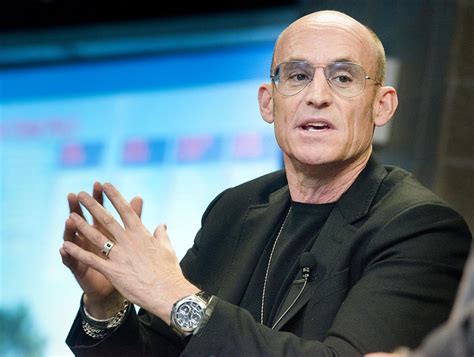A Quote by Martha Beck
If you ask people, as I often do, how they make decisions, 'lucky' people will talk about tuning in to information and instincts, while 'unlucky' people often mention pushing away the uncomfortable feeling they were headed for trouble.
Related Quotes
People are great. But there's people who you get together with and you talk and you go away feeling energized, you feel inspired. And then there's people who you talk with and you go away feeling horrible, feeling drained, feeling like you're incapable of doing anything. Those people are psychic vampires and I now stay away from them.
There has been a lot of talk lately about the burdens of the Presidency. Decisions that the President has to make often affect the lives of tens of millions of people around the world, but that does not mean that they should take longer to make. Some men can make decisions and some cannot. Some men fret and delay under criticism. I used to have a saying that applies here, and I note that some people have picked it up, If you cant stand the heat, get out of the kitchen.
Compassion is not a popular virtue. Very often when I talk to religious people, and mention how important it is that compassion is the key, that it's the sine-qua-non of religion, people look kind of balked, and stubborn sometimes, as much to say, what's the point of having religion if you can't disapprove of other people?
Stories about sensitive issues like sex, drugs or sexual assault, suicide and teen drinking, are often censored because people just don't want to talk about those things. It's not that these things don't happen, but when they're shared in a fictional setting, for some reason they make some people uncomfortable.
I'd never go up to somebody and start preaching, but if somebody asks I'm willing to talk about it. Often, after people have seen me praying, they'll ask and it's a chance to show how normal prayer time is and why we do it, to teach people about the religion. Not to try to change them, but to explain.
Well people often ask me how I felt growing up with a father who was a politician and who was often away. But when I'm asked that question I often reflect on my inability really to be able to answer it in any relative sense because I never grew up with a father doing anything else. So I just have no idea what it would be like otherwise.
Liberals tend to understand that a person can be lucky or unlucky in all matters relevant to his success. Conservatives, however, often make a religious fetish of individualism. Many seem to have absolutely no awareness of how fortunate one must be to succeed at anything in life, no matter how hard one works. One must be lucky to be able to work. One must be lucky to be intelligent, physically healthy, and not bankrupted in middle age by the illness of a spouse.



































